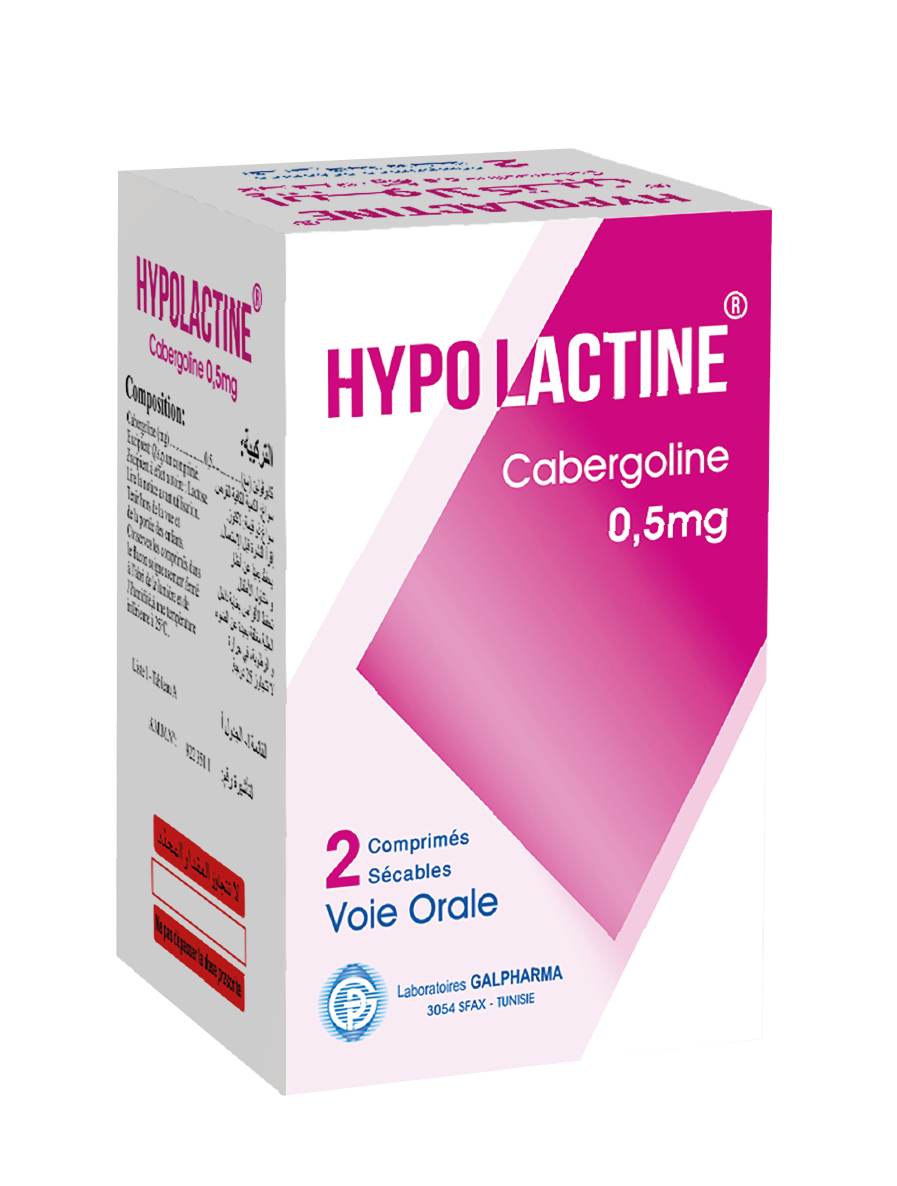
Indications
1/Inhibition/suppression of physiological lactation: HYPOLACTINE is indicated for the prevention of physiological lactation immediately after childbirth and for the suppression of current lactation: - after childbirth when the mother chooses not to breastfeed her child at the breast or that breast-feeding is contraindicated for medical reasons relating to the mother or the newborn. - after the birth of a dead fetus or after an abortion. HYPOLACTINE prevents physiological lactation through inhibition of prolactin secretion. In controlled clinical trials it has been demonstrated that cabergoline, administered as a single dose of 1 mg on the first day postpartum, was effective in inhibiting milk secretion, as well as reducing breast congestion and pain in 70 years. -90% of women. Only a very small number of patients presented with recurrent breast symptoms, generally not serious in the third week after delivery. Suppression of milk secretion and improvement of symptoms related to breast congestion and pain following milk flow are achieved in approximately 85% of women who receive a total of 1 mg of cabergoline, administered in four doses. divided for two days.Return to breast symptoms after 10 days is rare. 2/ Treatment of hyperprolactinemic disorders: HYPOLACTINE is indicated for the treatment of disorders associated with hyperprolactinemia such as amenorrhea, oligomenorrhea, anovulation and galctorrhea. HYPOLACTINE is indicated for patients with pituitary adenoma that secretes prolactin (micro and macroprolactinoma), idiopathic hyperprolactinemia, or empty stool syndrome associated with hyperprolactinemia, fundamental pathologies in the aforementioned clinical manifestations. HYPOLACTINE administered in doses of 1-2 mg per week as chronic therapy was effective in normalizing serum prolactin levels in approximately 83% of women previously with amenorrhea. Based on monitoring of progesterone levels, determined during the amenorrhea phase. lutein, ovulation returned to normal in 89% of treated women, galactorrhea disappeared in 90% of treated cases. In 50-90% of cases of both female and male patients with micro- or macro-prolactinoma a reduction in tumor mass was evident.
API
Cabergoline
Therapeutic area
Genito urinary system and sex hormones
Forms
Scored tablet
Dosage
0.5 mg
Presentation
FL/2
Table
A


